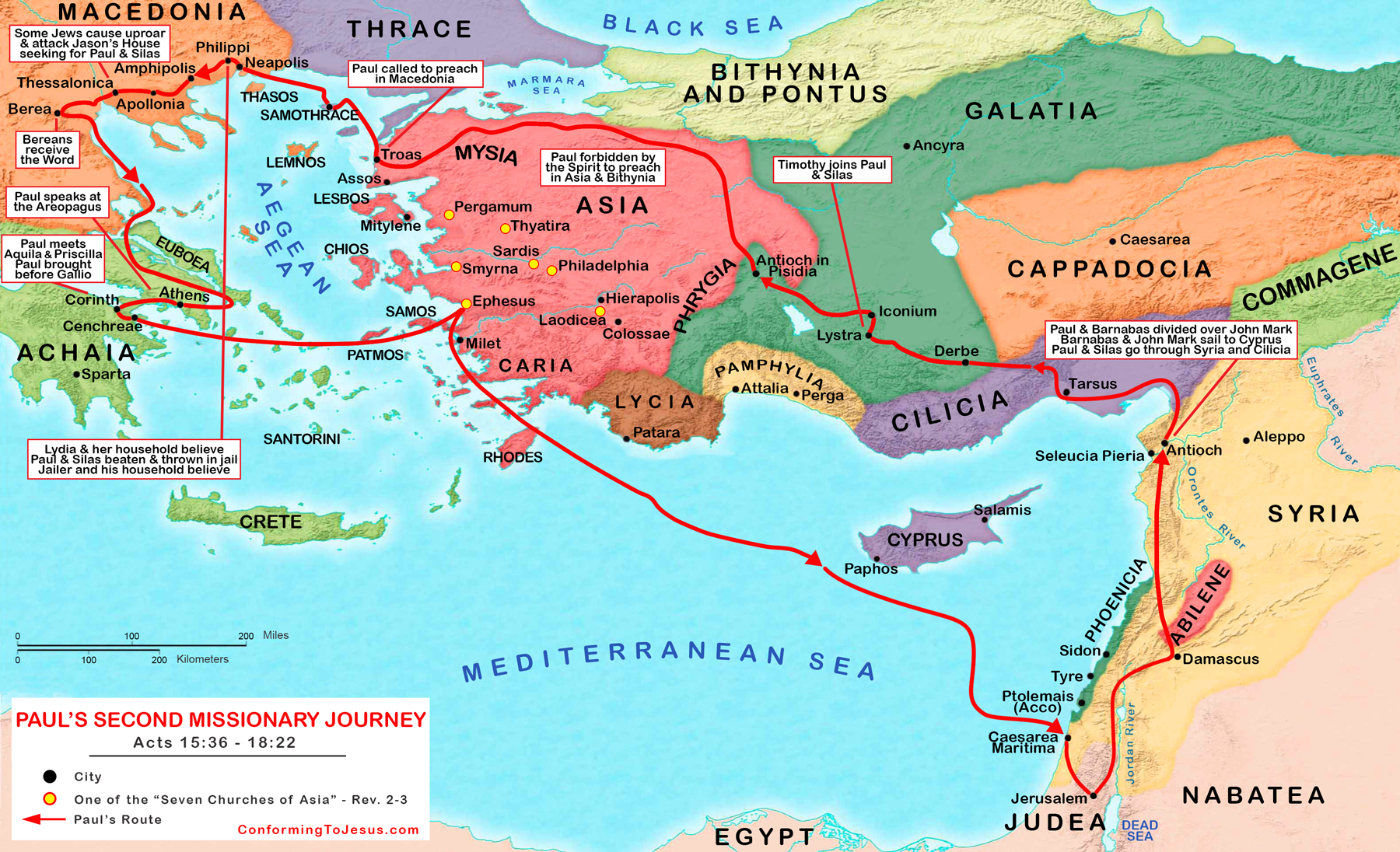 I’ve always been amazed how God uses sinful humans like us to accomplish his saving work. He’s God, after all. Nothing impossible, you know? Created the universe without a word of input from us. Yet he chooses to spread his Gospel through us dust-made-into-man-reborn-by-his-Spirit creatures.
I’ve always been amazed how God uses sinful humans like us to accomplish his saving work. He’s God, after all. Nothing impossible, you know? Created the universe without a word of input from us. Yet he chooses to spread his Gospel through us dust-made-into-man-reborn-by-his-Spirit creatures.
Just as amazing is how God calls us to the work. (Here I’m thinking of all believers, not just the “paid professionals.” We’re all called to follow Jesus and to “gossip” his Gospel.) Probably the most dramatic was his call to Saul of Tarsus (better known as Paul). Literally a blinding light and Jesus audibly calling Saul to take the Gospel to Gentiles. A most humiliating experience it was for the arrogant young rabbi.
By contrast, here’s Timothy. Called to join Paul and Silas on Paul’s second missions trip. But no knock-him-down-in-the-dust-blinding-light-from-heaven. Sounds more like Paul was simply hiring another hand. Here’s how author Luke recorded it.
Paul traveled on to Derbe and Lystra, where a Christian named Timothy lived. His mother, who was also a Christian, was Jewish, but his father was a Greek. All the believers in Lystra and Iconium spoke well of Timothy. Paul wanted to take Timothy along with him, so he circumcised him. He did so because all the Jews who lived in those places knew that Timothy’s father was Greek (Acts 16:1-3, TEV).

Timothy, son of an ethnically-mixed marriage, may have become a believer on Paul’s first missions trip. It’s likely that Paul arrived back in the area looking to replace John Mark, who had “withdrawn from them in Pamphylia and had not gone on with them to the work” [on the first trip] (Acts 15:38). If so, that would be why believers in that area gave their opinion of young Timothy. Based on those recommendations, “Paul wanted to take Timothy along with him . . . ” Not exactly a Damascus Road experience, though.
A word of explanation about Paul circumcising Timothy “because all the Jews who lived in those places knew that Timothy’s father was Greek.” To Jews, a Greek father made Timothy a Gentile. To Gentiles, Timothy was practically a Jew, having been raised in his mother’s Jewish faith. Paul circumcised him, then, not because he believed circumcision was necessary for a Gentile’s salvation (he didn’t), but so his religious “status” would be unambiguous and he’d be more accepted in his ministry by both Jews and Gentiles. Not terribly interesting, I know, but an example of Paul becoming “all things to all people, that by all means I might save some” (see 1 Corinthians 9:9-23).
As they went through the towns, they delivered to the believers the rules decided upon by the apostles and elders in Jerusalem, and they told them to obey those rules. So the churches were made stronger in the faith and grew in numbers every day (Acts 16:1-5, TEV).
With no I-Phones or Internet, the three men hand-delivered the letter communicating the Jerusalem Council’s critical decision that Gentiles wouldn’t have to be circumcised and obey Moses’ law.
And that kindled the Gentile church. The little word “So” (Greek, men oun) indicates continuation of the prior thought. Here’s my interpretive paraphrase: ” . . . the church was made stronger in the faith and grew in numbers every day as a result of Paul’s visit and the welcome letter from Jerusalem.”
Something else may have strengthened and grown the church: Timothy. His call, mundane as it seemed, showed that the Holy Spirit was not only converting sinners, but also building a leader among them.
In the last post I noted that “The church was born in a hostile environment.” Nevertheless—despite arrests, beatings and even martyrdom—author Luke reported the church’s advance again and again . . .
So those who received [Peter’s] word were baptized,
and there were added that day about three thousand souls.
(Acts 2:41)
And the Lord added to their number day by day
those who were being saved.
(Acts 2:47b)
But many who heard [Peter’s] word believed,
and the number of the men came to about five thousand.
(Acts 4:4)
And more than ever believers were added to the Lord,
multitudes of both men and women.
(Acts 5:14)
Now when the apostles at Jerusalem heard that Samaria had received the word of God
(as a result of Philip’s preaching)
they sent to them Peter and John . . .
(Acts 8:14)
So the church throughout all Judea and Galilee and Samaria had peace
and was being built up.
And walking in the fear of the Lord and in the comfort of the Holy Spirit,
it multiplied.
(Acts 9:31)
And [Dorcas being restored to life] became known throughout all Joppa,
and many believed in the Lord.
(Acts 9:42)
And the hand of the Lord was with [those who preached at Antioch, Syria],
and a great number who believed turned to the Lord.
(Acts 11:21)
And when the Gentiles [at Antioch in Pisidia]
heard [the word of the Lord through Paul]
they began rejoicing and glorifying the word of the Lord,
and as many as were appointed to eternal life believed.
And the word of the Lord was spreading throughout the whole region.
(Acts 13:48,49)
So (there’s that little word again) two points to make . . .
One, we never know how God might use us when he calls. In fact, we won’t know how he has used us until the new creation. Most of us tend to think of ourselves as ordinary. But God sometimes uses ordinary people in extraordinary ways. (The enabling power is the Holy Spirit.) And even from what seems like ordinary Christian living (like raising our children to follow Jesus) God can produce extraordinary results. Timothy is a classic example. A new convert. From a mixed marriage. Yet he became like a son to the apostle Paul and was instrumental in leading the church at Ephesus through turbulent times. Two key letters in the New Testament are addressed to him.
Two, the church is the most important institution on the planet and, when all others fall, she will stand. The local church doesn’t seem so significant in the world’s scheme of things. A bunch of common people. Sometimes frustrating. Easily tempted by the ways of the fallen world. Rarely mistaken for Christ’s body on earth, speaking his words, doing his deeds. But the church is triumphant because her Lord is.
So may the church’s advance Luke recorded be true of the church today!
And may the Lord, who called us, use us in that advance!
Help us remember: We are the church triumphant!

Recent Comments